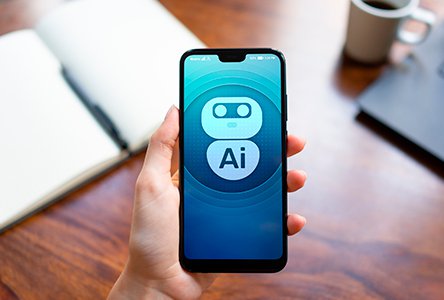Chatbots: improving customer service and satisfaction
AI-Chatbots are invaluable tools for customer service enabling better productivity and competitive advantage.
Artificial Intelligence (AI) is transforming different industries and businesses - from retail, banking and tourism to food and health care. And the customer service industry is no exception. Companies in this industry are constantly searching for innovative solutions and technologies to stand out from their competitors and adapt to new market demands. Different types of technologies have been implemented over the last decade, but AI-based chatbots are proving to be the most promising and effective.
These virtual assistants, also known as chatbots, have become an essential part of the user experience, offering a range of benefits that improve efficiency, increase profits, open up revenue streams, enhance customer experience and create a personalized approach to customer service. In fact, in 2018, 25% of all interactions globally with customers were automated, and by 2030, chatbots in this industry are expected to collect one billion service tickets, according to a study carried out by Gartner.
"Thanks to Artificial Intelligence and machine learning technologies, chatbots are now becoming invaluable tools for customer service operations, as they not only optimize user experiences at every stage of the service process, but they also free up call center employees from routine tier-1 support requests so they can focus on more complex tasks" notes Gustavo Parés, CEO of NDS Cognitive Labs, a Mexican company specializing in Artificial Intelligence.
According to NDS Cognitive Labs, here are four ways chatbots are helping the customer service industry:
Instant Responses
Chatbots are available 24/7 to address consumer issues without any waiting time, responding instantly. This is great for the customer service industry since clients don't like waiting, and any wait time can result in frustration. Research from HubSpot shows that 90% of consumers considered a quick response to be very important when they have a customer service query, while 60% stated that in order for a response to qualify as quick, the wait time should be 10 minutes or less.
Omnichannel strategy
Consumers want their shopping experience to be equally satisfying both in-store and online. Likewise, they want their contact with the company to be the same via phone, email, social media or chat. Fortunately, chatbots can be integrated into all of the company's communication channels, making it easier for clients to contact the company from any platform they choose. Each channel works together to create a unified experience – whether the customer decides to shop online, via phone or in a brick-and-mortar store, the experience will be seamless.
This creates a new customer service and sales channel through the same communication channels that the company already uses, like WhatsApp or Facebook Messenger. In addition, the virtual assistant is able to encourage sales once the customer's concerns are settled, by recommending products according to the user's purchase history and process SMS payments.
Reduce operating costs
About 265 billion customer service requests are made globally each year, costing companies about $1.3 trillion, according to IBM, By implementing chatbots companies can save up to 30% according to Chatbots Magazine.
This is mainly due to the fact that chatbots provide support and resolve repetitive customer queries instantly, allowing call center agents to focus on more complex, specific and personalized queries. Companies will now be able to serve more customers and save money. For example, the chatbot used in Autodesk, a design software company, has reduced customer service response time from 38 hours to 5.4 minutes and the cost per case from $15-$200 to $1.
Improving Customer Satisfaction
According to the article titled "Are Chatbots Killing or Enhancing Customer Satisfaction?" published by Better than Sure, 33% of consumers are frustrated with having to wait too long or having to repeat the customer service process multiple times. Similarly, at least 40% of customers would like service representatives to resolve their inquiries faster.
Chatbots can improve customer service by answering customer questions faster and more accurately. They help agents get the job done better, all while reducing support costs. Furthermore, if they are unable to answer the desired question or solve the problem, they immediately transfer the conversation to an available human agent.

Share on social networks: